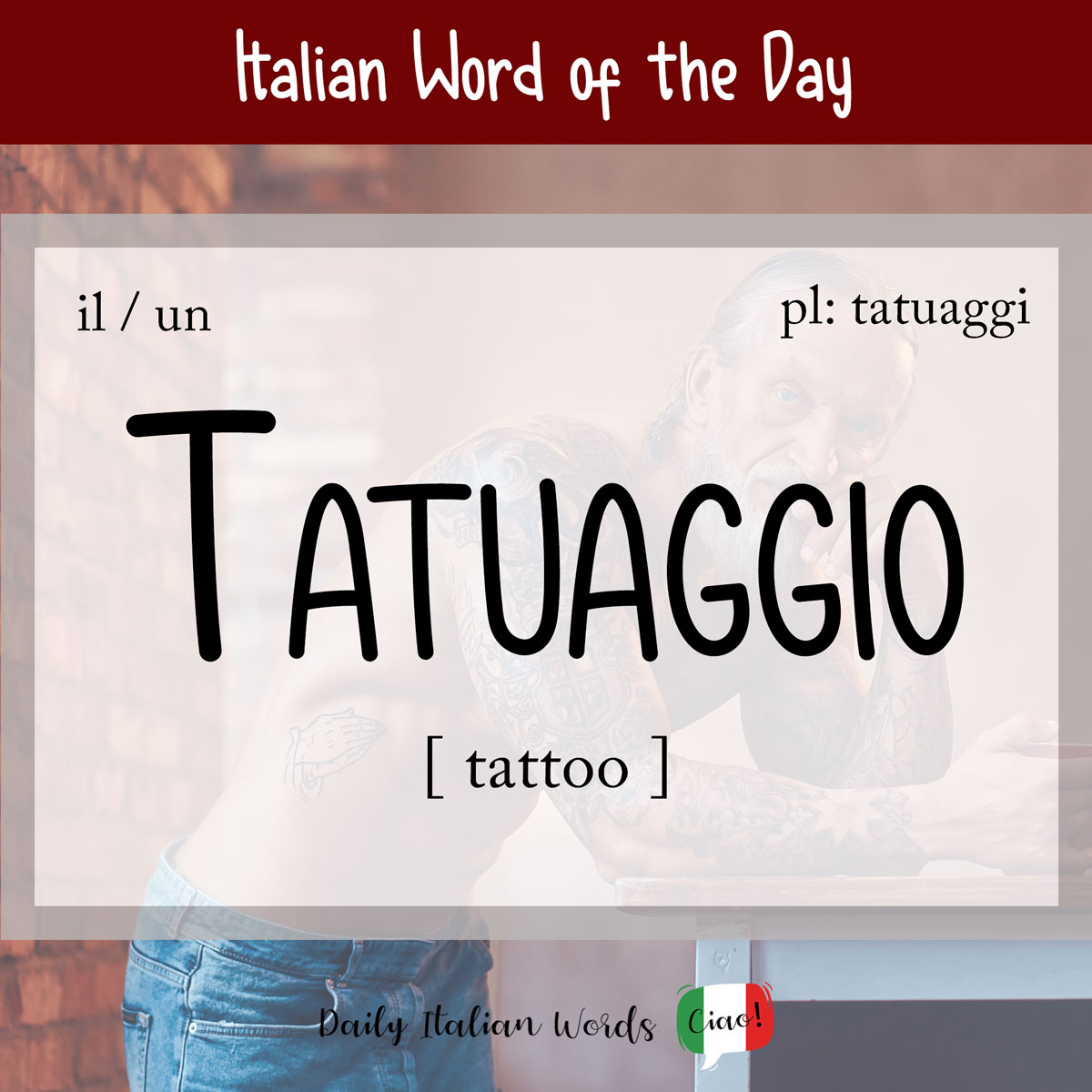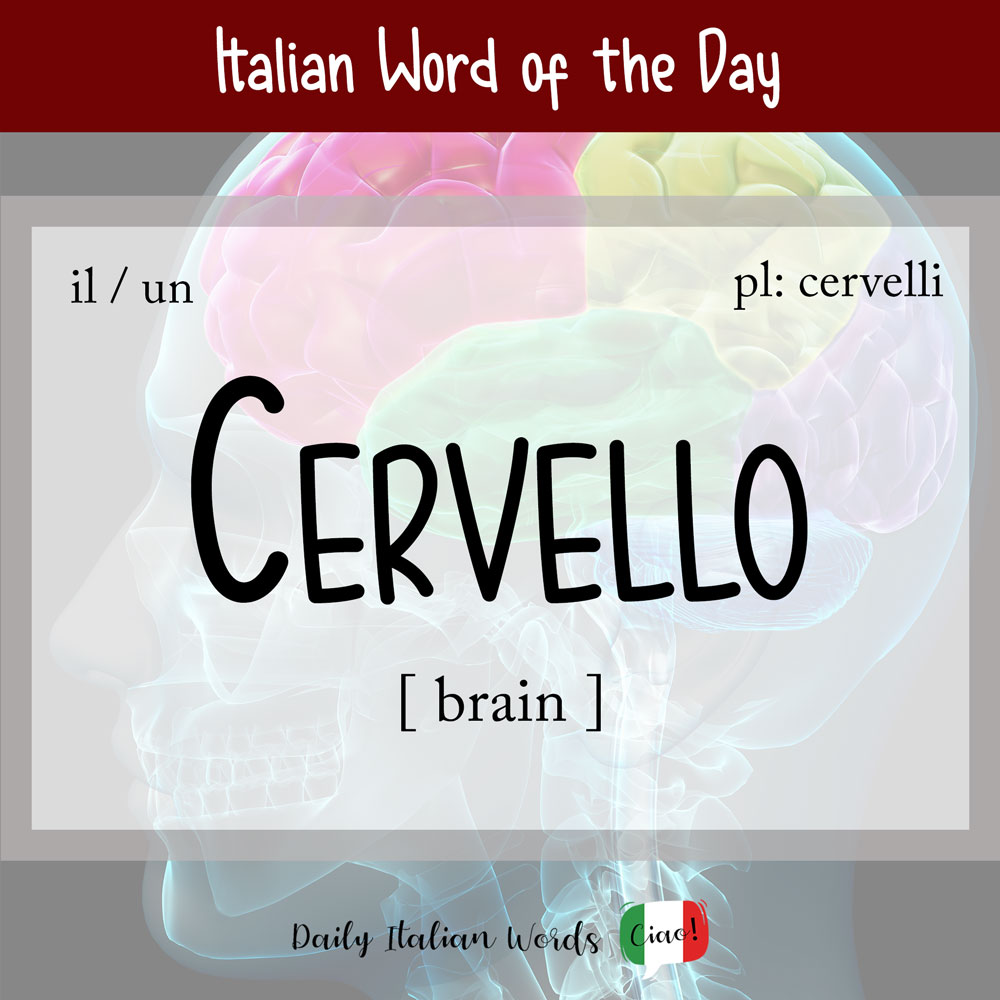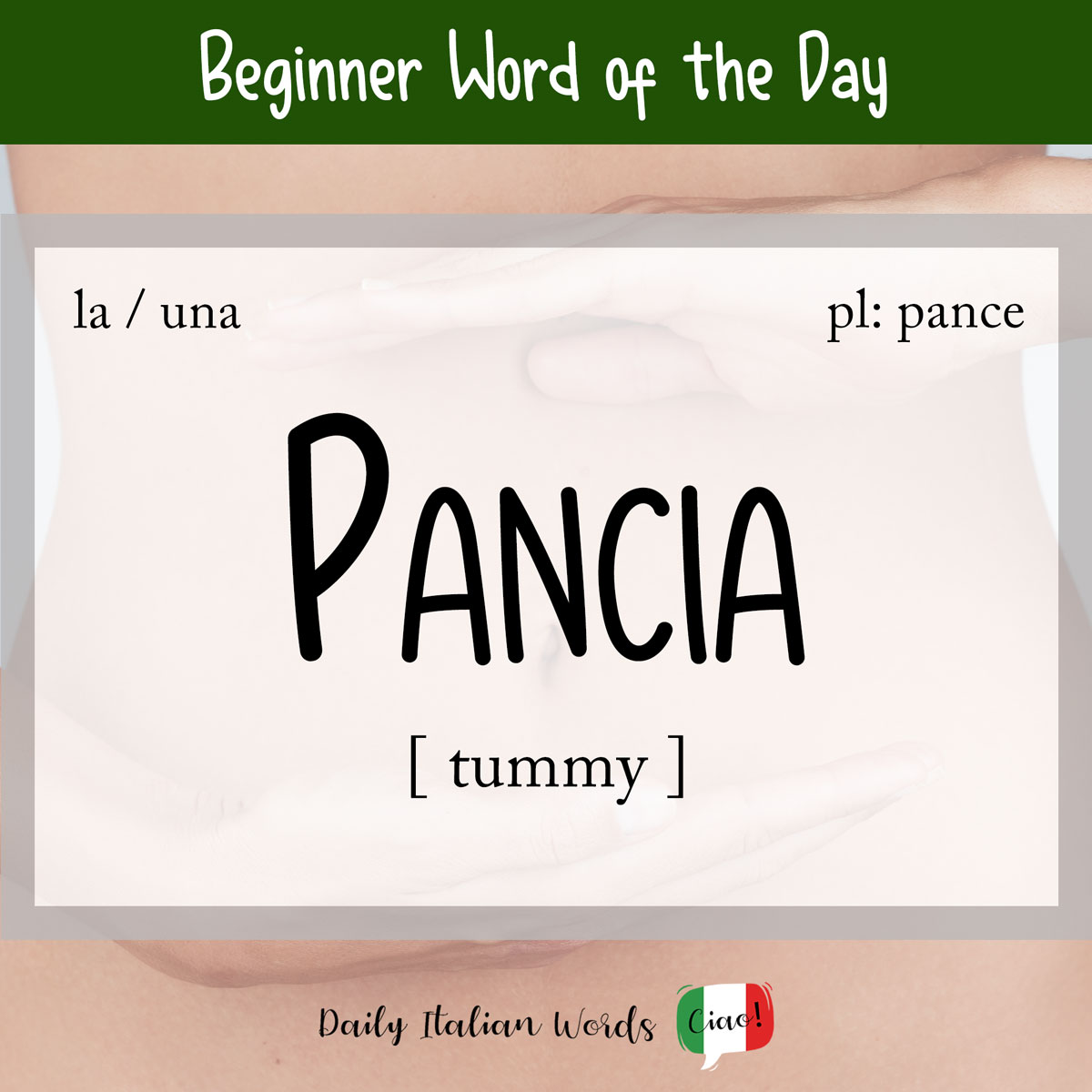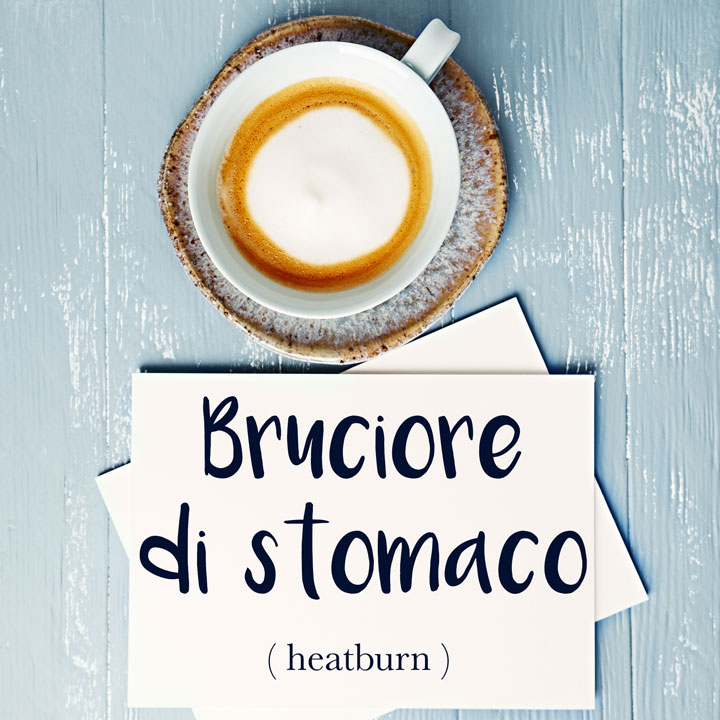Italian Word of the Day: Tatuaggio (tattoo)
The word for a design made by inserting pigment into punctures in the skin is tatuaggio (masculine, plural: tatuaggi) in Italian. It derives from the French tatouage, which in turn comes from the English tattoo. Learn with our video There are two ways of saying ‘to get a tattoo‘ in Italian: There isn’t a big …






